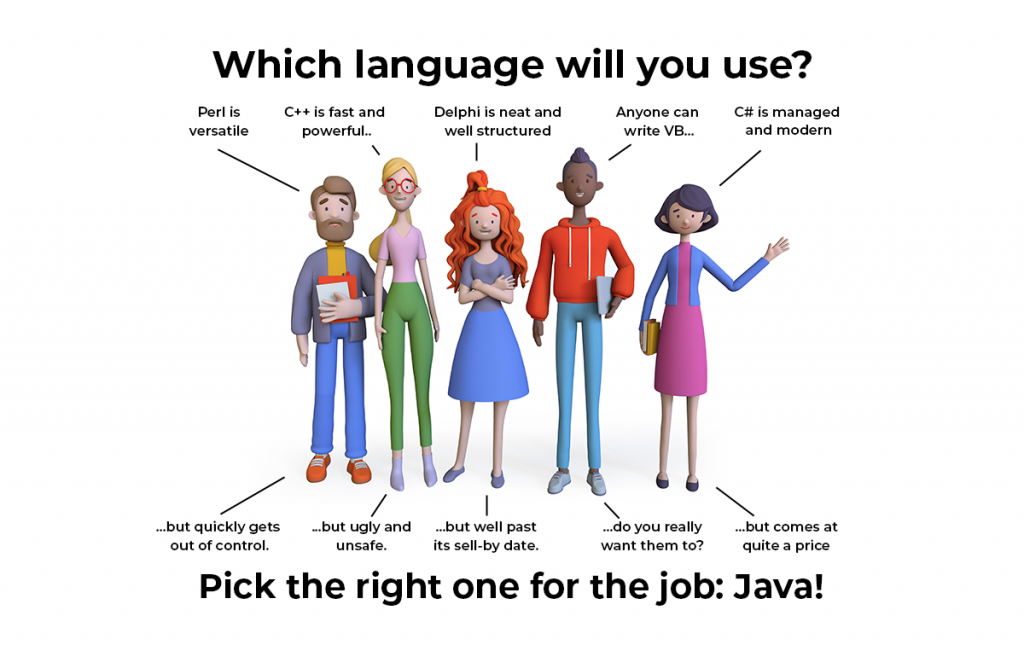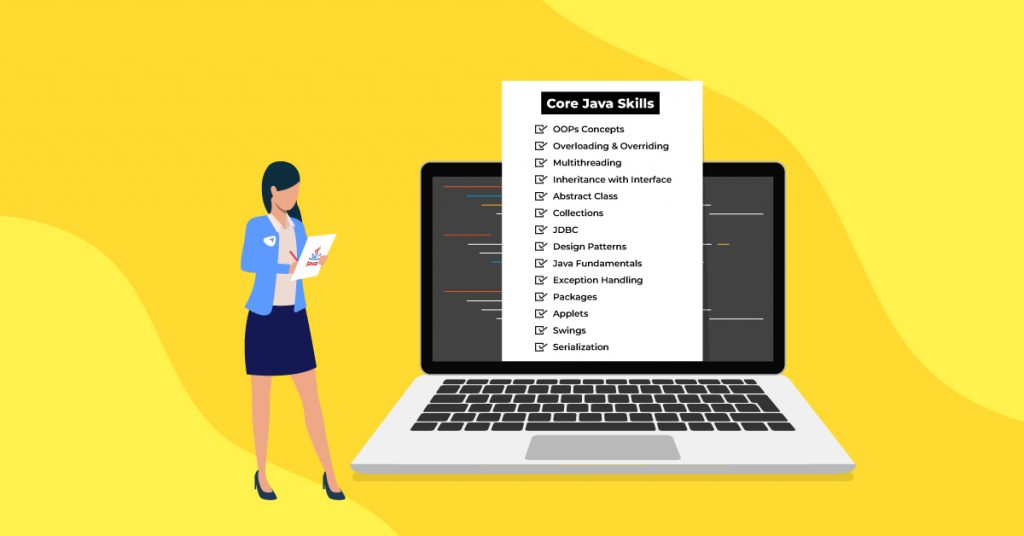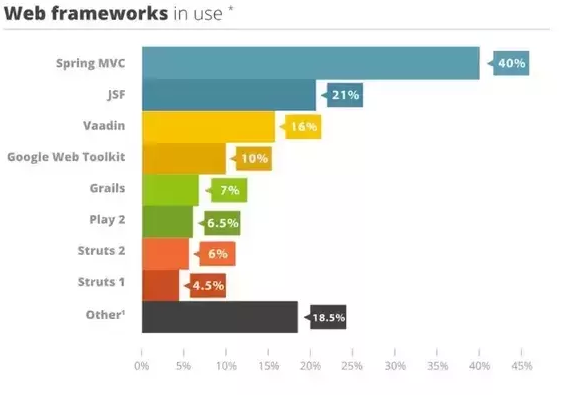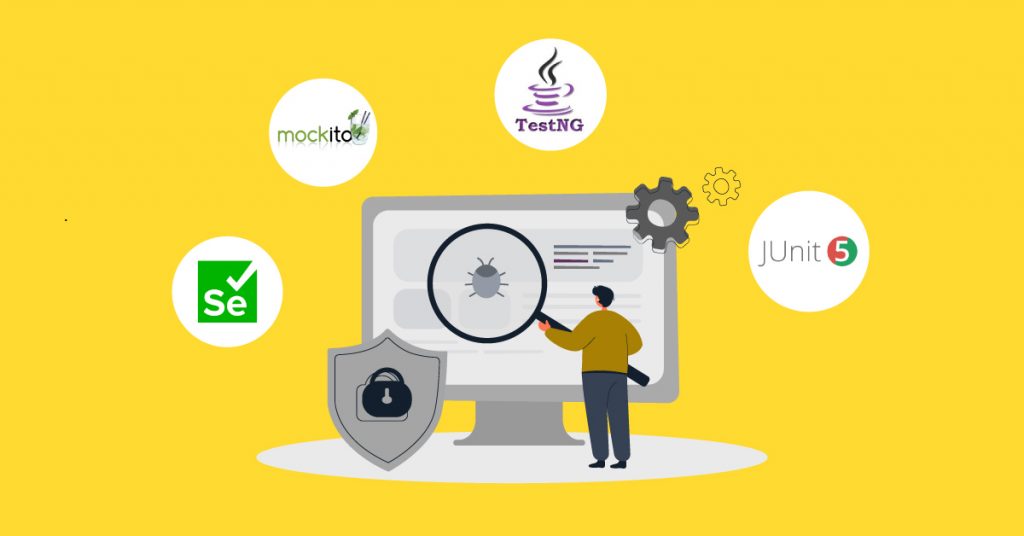Top 10 Java Developer Skills to Look for When Hiring in 2023: A Recruiter’s Guide to Right Talent Sourcing
- Kevin Oskow
- April 29, 2022
- 12 Minute Read

While the demand for IT-linked skills is on the rise, nothing can surpass the surge seen by Java developers for their skills.
Java developers are emerging as the rockstars of Information Technology! In fact, a 2022 report indicates that Java is one of the top skills in demand across all industries – IT, finance, healthcare – you name it.
Such an upward trend comes as no surprise that businesses of all shapes and sizes are prepping to establish their presence online, and Java is the quickest medium of getting there. From front-end to back-end to full-stack development, Java developers can deliver on all fronts and help businesses reach their organizational goals.

However, there exists a severe demand-supply gap as skilled talent shortage is predicted to touch 85.2M workers, corresponding to revenue losses equivalent to $8.4T! In other words, it is a tale as old as time – too much demand but not enough talent to meet it! As such, hiring the right Java developer could make or break the Java-based project. And as a recruiting manager, you are entrusted with the task of finding diamonds from coal!
If you are a recruiting manager who is caught in the warfare of scouting for talent, we have captured the top ten in-demand Java developer skills to help you choose the right talent. Here’s an overview of the same!!
[PS: Seeing how this is going to be a good, long list, we recommend that you get comfy, as we walk you through the nitty-gritty.]
#1: Core Java Fundamentals – Primary Skill Set for Java Developers
Let’s start with the fundamentals of Java!
Core Java developer skills revolve around the most basic skills one needs to possess to qualify as a Java developer. Seeing as these are the core tenets of Java, candidates need to have a command of these basics to illustrate that they have a clear understanding of Java development. Typically, these Java developer skills include:

A. OOP Concepts
OOP, or Object-Oriented Programming, is the guiding principle of programming in Java. It introduces classes and object-style coding by coupling data and functions together in order to enhance code modularity, efficiency, safety, and stability. Following are a few defining characteristics of OOP:
- Abstraction only displays the relevant data and hides the complexities from the user.
- Inheritance is a mechanism that allows a child class to acquire some properties or attributes of a parent or superclass.
- Polymorphism allows the use of a single interface irrespective of the underlying forms, be it data types or classes.
- Encapsulation involves binding data with the code that manipulates it and shielding it from external manipulation.
B. Interface
The Java interface is a collection of abstract methods. It also contains constants, static methods, default methods, and nested types. Having these Java developer basic skills will help the programmer to containerize the code and enable smoother operations with software development.
C. Serialization/Deserialization
Serialization relates to converting an object into a sequence of bytes. On the other hand, deserialization allows the recreation of an object from a byte stream. The former is primarily used in Hibernate, JPA, RMI, JMS, and EJB technologies.
(Note: The above three are the core fundamentals that are the primary skills for java developers to know. There might be more core java concepts but mostly these are the vitals that your next java developer hire should have proper hands-on expertise in.)
#2: Java Web Technologies – Knowing the Vitals of Web Application Development with Java!
If you are looking to fill a position with multi-tier skills in the field of web application development and building software solutions, then Java shall form a mission-critical component of your company’s tech stack.
Java web technologies equip developers with the skill and expertise to build rich, engaging, and dynamic web applications. As such, you must seek these essential Java developer skills amongst the prospects – be it front-end, back-end, or full-stack.
You can’t miss out on this skill base when hiring java developers. In 2022, smart hiring is more emphasized and so onboarding a candidate with multi-tier skills is a profitable game plan than the other way around.
Most projects would call for the following Java web technology skills:
- HTML: HTML or HyperText Markup Language is a programming language that forms the core element of any web page. It also is a starting point for any aspiring web content developer.
- CSS: CSS or Cascading Style Sheets is a programming language that governs how the HTML elements of a website appear at the user end of the page. It allows developers to manipulate the design and layout so that the web content appears organized and well-formatted.
- JavaScript: It is a logic-based programming language used to create and modify web content so that elements can dynamically interact with each other.
- JSP: JavaServer Pages technology has been instrumental in quickly creating dynamic web applications that are independent of the platform and server.
- Servlet API: Servlet is a Java technology API with several interfaces and classes that are used to create and run a web application. It offers a platform-independent service to its users and enables not just dynamic web page development but also helps record responses via web page forms, presenting data from databases or other third-party sources, and many more alike.
The above skills will augment the developer’s web application development capabilities using Java and help them deliver to expectations.
You can be as generic or as specific as you want with your requirements herein. For instance, the world of Java is large and unending. Your company may have a preference for working with a particular spectrum of application development – and you will have to recruit accordingly to find a candidate that is a better fit.
Let’s follow up with Java web frameworks in the next segment!
#3: Java Web Frameworks – Niche Java Backend Developer Skills
Speaking of skills needed for Java web developers, they must also have a solid understanding of the different web frameworks involved. Frameworks are essentially tools that have pre-written code that acts as a template or reference. Developers can reuse these frameworks and make necessary modifications to them so that they can create new applications or solutions without having to write a code from scratch. Screening the knowledge of the top Java web frameworks is essential when hiring as it’s the most niche backend developer skill in 2022. You can’t miss checking the expertise in this skill if you want the best candidate to be hired.

Some of the popular frameworks that add weight to the Java developer skills in 2022 include:
- Spring: Spring enjoys widespread popularity amongst developers for its speed, simplicity, safety, and efficiency. Its two variants – SpringMVC and Spring Boot – supercharge Java to make it reactive, modern, and cloud-ready.
- Java Server Faces (JSF): Maintained by Oracle, JSF encapsulates a range of client-side technologies like CSS, JavaScript, and HTML to design UIs without having to learn the said technologies separately.
- Hibernate: If your company works with multiple databases, you might look for a Java developer to hire who is knowledgeable of Hibernate. Hibernate deploys Object-Relational Mapping (ORM) to couple Java classes with corresponding cells or tables in the database.
- Google Web Toolkit: Businesses eyeing to develop complex, high-performing web applications using Java often resort to the Google Web Toolkit. Knowing its use is a benefit for any developer now and in the future.
- Struts: Enterprise-grade Java applications often employ Struts to reduce development timelines. Struts are compatible with other Java frameworks as well as plugins that support integration with AJAX, JSON, and REST.
- Play: Play implements Java development by prioritizing convention over configuration. Its asynchronous processing minimizes resource requirements, thereby making the solution highly scalable.
A Java developer who possesses mastery over any of the frameworks listed above can effortlessly develop solutions in minimum time.
#4: System Design and Architecture – A Pro Java Developer Skill Set
System design and architecture form the pillar of any application – whether you are looking to develop software or a webpage or more. While developers would draw from their Java development experience and problem-solving abilities on a case-to-case basis, the working knowledge of Java design patterns would certainly lend a hand in devising appropriate solutions. Design patterns are standardized and proven solutions to frequently occurring problems. They can be broadly classified as:
- Creational Design Patterns, which typically include Singleton pattern, Factory pattern, Abstract Factory pattern, Builder pattern, and Prototype pattern.
- Structural Design Patterns, which typically include the Adapter pattern, Composite pattern, Proxy pattern, Flyweight pattern, Facade pattern, Bridge pattern, and Decorator pattern.
- Behavioral Design Patterns, which typically include Template Method pattern, Mediator pattern, Chain of Responsibility pattern, Observer pattern, Strategy pattern, Command pattern, State pattern, Visitor pattern, Interpreter pattern, Iterator pattern, and Memento pattern.
- Miscellaneous Design Patterns, which typically include DAO design pattern, Dependency Injection pattern, and MVC pattern.
Clearly, that’s a lot – but we’re not done yet!
Apart from the design-related Java developer skills mentioned above, the developers should also possess practical skills to implement these designs into highly functional architectures. Traditionally, Java applications were backed with a gigantic, monolithic architecture. However, we are now witnessing a divergence from this trend as architectures become smaller, modular, and distributed. As such, developers who can build and work with the Microservices architecture would be an asset to the organization.
All this may feel like a lot, so to summarize, a developer who has a solid understanding of system design and architecture can deliver highly flexible, scalable, readable, and maintainable projects – in other words, they gift you limitless potential!
#5: DevOps Tools – Additional Yet Important
Regardless of the programming language employed by any business, DevOps has played a groundbreaking role in streamlining the software development life cycle. It beefs up Java development by infusing it with the principles of continuous integration (CI) and continuous development (CD). In such settings, the knowledge of the following DevOps instruments can come in handy for advanced Java skills:
- Apache ANT: A general-purpose Java library and a command-line tool used for automating software build processes.
- Apache Maven: Like ANT, Maven is a build automation tool that aids in the building, publishing, and deployment of several projects at once.
- Git: An open-source version control system that facilitates project tracking and coordination between a team of programmers.
- Docker: A high-end container management DevOps tool used to build, ship, and execute distributed applications on multiple systems.
- Jenkins: Jenkins is a useful DevOps tool that monitors the execution of recurring tasks, thereby setting the stage for continuous integration.
- Chef: Chef is used for incorporating scale, speed, and consistency in infrastructure and configuration management during project development.
- Ansible: It is a utilitarian DevOps tool that can be used in automating application deployment, intra-service orchestration, cloud provisioning, and more. Developers can use it to touch peak productivity while scaling automation.
To reiterate, DevOps tools are language-agnostic. As such, if you find a Java developer proficient in multiple languages and can use DevOps tools, then they can offer your company long-term value in various ways. Aka – you’ve hit the Java developer technical skills jackpot!
#6: Database Management – Key Component to Know for High Volume of Data Maintenance

As Big Data takes center stage, developers are expected to understand the nuances of database development and management. And you will find Java behind some of the most widely used databases or tools that work with data. So, if you are hiring a Java developer and want him/her to be a pro-level specialist in all areas of work, then seek out the following advanced Java developer skills:
- SQL: SQL, or Structured Query Language, is a standard language used to store, manipulate, and retrieve data in RDBMS. It has given rise to RDBMS like MySQL and PostgreSQL.
- NoSQL: NoSQL involves non-relational database management systems that may or may not support SQL queries. Cassandra and MongoDB are some NoSQL DBMS that are widely used.
- Oracle: It is hands-down the most popular RDBMS (Relational Database Management System). While the latest version of Oracle, 19c, is readily available, enterprises are still heavily using 11g and 12c – a testament to its timelessness.
- Apache Hadoop: This Java-based software platform helps with the management and processing of big data. Hadoop components, such as Pig, Hive, MapReduce, HDFS, HBase, etc., are highly in demand.
- Tableau: Tableau is a powerful tool that helps visualize data and extract business intelligence from it.
- Apache Kafka: A distributed event data storage and processing platform that allows applications to work with data.
- Apache Camel: This rule-based routing and mediation engine allow developers to effortlessly integrate systems that produce or consume data.
The above-mentioned Java developer skills enable them to effectively work with high volumes of data, thus realizing your business’ dream of harnessing Big Data to its benefit.
Well, who would have guessed it – you’ve reached the halfway mark! In other words, you are just a few steps away from finding the best Java developer out there!
#7: Testing Tools – Acquainted with the Top Tools and Their Functionalities

Developers, irrespective of their language, should know how to write a code and test its performance – and the same applies to Java developers as well.
Against the background of Java development, the following testing tools gain importance:
- JUnit: JUnit is a highly popular Java unit testing framework used for testing the path or a portion of the code. It makes testing an integral segment of development, which nips the issue right in the bud and prevents rework or catastrophic failures.
- Selenium: This open-source, automated testing framework allows developers to perform cross-browser testing of the Java application. It can seamlessly integrate with DevOps tools like Jenkins, Maven, and Docker to make testing consistent.
- TestNG: The NG in TestNG denotes “Next Generation,” thereby offering a sneak peek into how this automation testing framework is a more refined version of its predecessors – JUnit and NUnit.
- Mockito: This test framework helps perform the unit testing of applications using dummy data or functionality to a mock interface. As Mockito creates mocks using annotations, developers do not have to create any mock objects, which is one of the greatest advantages of this framework.
The above testing tools can help evaluate the functionality of the Java application regardless of its size. Further, choosing a candidate who has a grasp of these testing tools would somehow alleviate the strain of recruiting a dedicated resource to carry out testing – talk about two birds with one stone!
Being in the market to recruit the best requires you to evaluate the above skills needed for Java developers to be proficient in all areas of building scalable, secure, and dynamic IT solutions.
#8: SOLID Principles: Knowing the Core Concept & Its Uses
As an OOP language, Java development must adhere to the SOLID principles. SOLID is an acronym for five distinct class-design principles that point toward what do Java developers need to know which are:
- Single Responsibility: Every class should be responsible for a corresponding unit part or functionality in the system.

- Open/Closed: Software components must be open to expansion but closed to modification.
- Liskov Substitution: Objects belonging to a superclass should be replaceable by the objects within its subclasses without breaking the system.
- Interface Segregation: Larger interfaces must be split into smaller ones so that implementing classes only have to function with methods concerning them.
- Dependency Inversion: The decoupling of software modules should be such that high-level modules should not depend on low-level modules. Both entities should only depend on abstraction.
SOLID ensures that the solution is modular, easy to understand, debug, refactor, and maintain. It saves the time and effort put into the development and maintenance of the code without compromising its quality. In other words, it is a sign of a reliable Java developer.
#9: JVM Internals: Advanced Java Skills on How Things Work
If you have been in the field of recruitment for long, you know that you are expected to know the ins and outs of hiring, onboarding, and catering to the employees’/candidates’ needs. The same goes for Java developers, they need to know about the heart of Java – the Java Virtual Machine.
Java applications run in the Java Runtime Environment (JRE), and the Java Virtual Machine (aka JVM) is the backbone of JRE. It analyzes and executes the Java bytecode. Most importantly, it grants Java applications the WORA – Write Once, Run Anywhere – quality, which makes it platform-independent.
While it is not essential for a developer of Java to know about the functioning of the JVM, it definitely helps if they possess this skill. After all, knowing all about the JVM, its parts, and how they function can help them write high-performing, robust codes. In other words, it is a sign that they are a cut above the rest.
You can either conduct a Java proficiency test or assess the Java developer’s skills by asking questions related to Just-in-Time (JIT) compilation, multithreading, class loading, JVM options, collector, garbage collection, race conditions, concurrency handling, reflection, delegation, performance bottlenecks, execution models, memory management, compile-time and runtime errors, and more.
#10: Soft Skills for Java Developers

While most of the Java developer skills discussed so far have been technical in nature, a well-rounded Java developer must also have the following soft skills:
- Communication: Java developers will have to work with other stakeholders from different walks of life. Hence, they should have the communication abilities to articulate their thoughts and convey technical or non-technical information in a simple manner.
- Comprehension: The Java developer will have to understand your requirements and build accordingly. As such, they will have to leverage active listening to truly deliver to expectations.
- Teamwork: Java developers will have to work with others – within or outside the team. Accordingly, they should have a team spirit that allows them to work with others frictionlessly.
- Time management: A developer is always working against the clock. However, with effective time management and organization, a developer can make efficient use of their time to honor deadlines.
- Creativity: Whether it is problem-solving or thinking outside the box, developers will require some amount of creativity to overcome any issues that may crop up during the SDLC.
These soft skills for Java developers will shed light on whether the developer is the right fit for the job or for your organization. Of course, you can be as picky about it as you want.
Ready to Make the Right Pick?
Given the number of variables involved, hiring a Java developer can seem like an overwhelming and tiresome process. But don’t despair; use the pointers shared above to evaluate the competency of Java developers. Also, you can seek help from agencies like us who are involved in matchmaking the right skill with the right company. With Uplers, you can hire pre-vetted Java developers who are worth their weight in gold!
What are you waiting for?

Thank you for submitting the details!
We will keep your information safe. Feel free to contact us with any questions at hello@uplers.com
Please check your email for next steps shared by Robert.

















